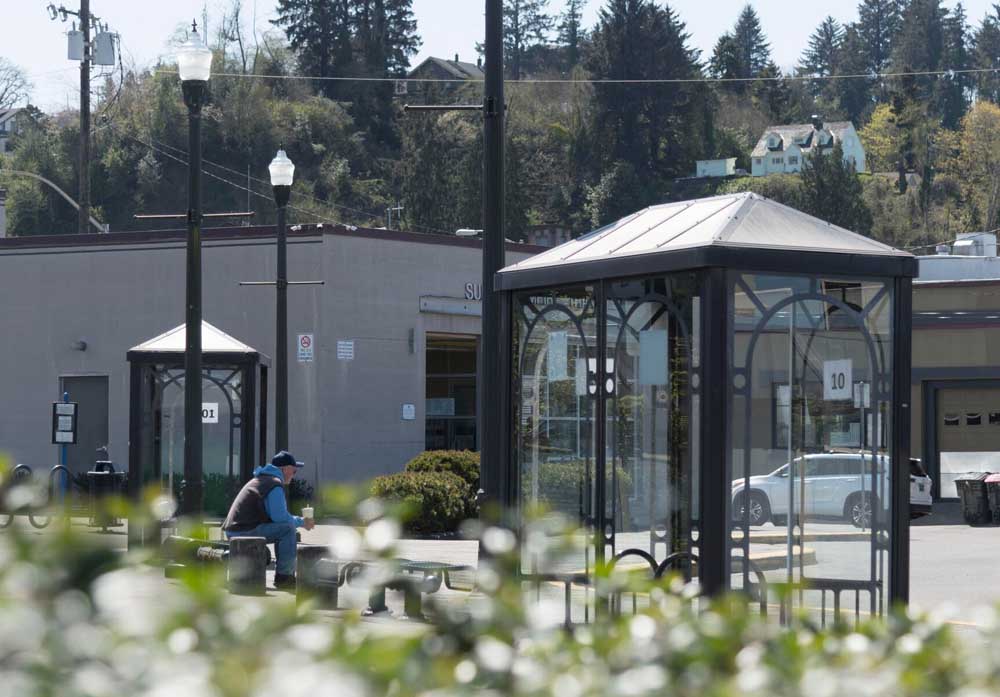State offers loan to help struggling North Coast transit district
Published 6:00 am Friday, May 5, 2023

- The Sunset Empire Transportation District suspended bus service and other operations on Saturday.
The Oregon Department of Transportation has extended a loan offer to the Sunset Empire Transportation District amid backlash to the agency’s decision to indefinitely suspend bus service and other operations because of a financial collapse.
The transit district’s board held a special meeting Wednesday to weigh the state’s offer, Debbie Boothe-Schmidt, the board chairwoman, said.
“It’s not a huge amount, but there is more to come if we need it to bridge until our next grants start coming in, as long as we’re responsible with what we’re doing with it,” Boothe-Schmidt said of the loan.
The agenda for the meeting originally included an executive session to consider dismissal, discipline, complaints or charges against a public officer, employee or staff member, but Boothe-Schmidt said that portion has been canceled.
Boothe-Schmidt said the transit district is trying to restart services as soon as possible, but declined to provide a target date, noting that the agency has to get staff back on board and ensure that services can be sustained.
Prior to the board’s decision on April 27 to suspend services on Saturday, the state Department of Transportation said that it would withhold funds owed to the transit district until a financial audit of the agency was completed, citing discrepancies between financial reports and concerns over how state and federal funds were being dispersed.
Karyn Criswell, a state Department of Transportation public transportation district administrator, said Tuesday that the state has pivoted to offering loan funds before an audit because of recognition that the audit could take some time.
“This is a balancing act between … there are members of the community that absolutely rely on that service and we want it back up and running as quickly as possible, but we also have to take care of protecting the taxpayers’ purse, so to speak,” she said.
Criswell said the state is looking to get an audit in motion soon, but will first meet with the Oregon secretary of state’s office auditing division to gather feedback and determine what authority is best suited to conduct the financial review.
“This is an unprecedented situation that we have not found ourselves in the state of Oregon,” Criswell said. “We have never had a public transportation provider in this financial situation, so I think it’s required — there was a team of us working over the weekend trying to figure out what we can do to get service back going in the community.”
‘Extremely concerned and frustrated’
At an April 18 meeting, Jeff Hazen, the executive director of the transit district, made the startling recommendation to suspend services and pointed to a significant shortfall in cash. The decision was delayed until last week, when Hazen made the same recommendation.
The board frantically sought to keep operations intact before voting unanimously to suspend services. Some board members have said they were unaware that finances were at a critical point until recently.
In the days since the transit district suspended services and furloughed employees, community leaders and riders have expressed frustration with the lack of oversight and have scrambled to fill the gap left behind.
“I am extremely concerned and frustrated about the situation surrounding the Sunset Empire Transportation District suspension of services,” state Sen. Suzanne Weber, a Tillamook Republican who represents the North Coast, said in a statement. “ … I am deeply concerned for those employed by the district, those who rely on bus service for work, and our elderly and disabled riders who depend on the service to get to medical appointments.
“My first priority is getting service restored. After that is achieved, a thorough investigation should occur and those responsible must be held accountable.”
Weber has worked closely with Gov. Tina Kotek’s office to reach a solution.
Warrenton Mayor Henry Balensifer credited Weber, Kotek, state Rep. Cyrus Javadi — a Tillamook Republican who represents the North Coast — and others for jumping into action.
“This had an immediate, harmful effect on both businesses and employees, not to mention seniors, disabled persons and such,” Balensifer said. “I think that everybody agrees that we demand accountability for how did we not see this coming, so to speak. But the first and foremost thing is the riders — that is the most important part because those are who get hurt the worst.”
The transit district, in addition to providing bus routes across the county, also offered paratransit services for the elderly and disabled. The Lower Columbia Connector took riders between Astoria and Portland.
“Most of us seated here have the luxury of getting into a car when we want to and go to our job, our medical appointment, to see friends, grocery shop, take a vacation or even come to a City Council meeting,” Astoria City Councilor Elisabeth Adams, a former employee of the transit district, said at a City Council meeting Monday night. “Our community that relies on public transit is in a state of emergency.”
City councilors were concerned about the impact on the region and conveyed confusion over how the transit district reached such a perilous financial situation.
“It’s critical for our town to have those services operating,” City Councilor Andy Davis said. “I find it unconscionable that it’s gotten to the point where it’s shut down.”
Kathy Kleczek, a transportation options specialist for the transit district, also shared comments at the meeting.
“Some of us are devastated at what this is doing to the community and some of us are working very hard, even though we’re not being paid for it, to help in every way that we can,” she said. “We hope that this is resolved as soon as possible … I just want you to know that the employees were not in the know, they didn’t know either. This was a very executive situation.”
The financial collapse has parallels to a management and budget crisis at the transit district more than a decade ago that led to staff cuts and a significant reduction in services.
Enterprise Cascadia, now Craft3, loaned money to the transit district to help the agency get through the crisis. The Oregon Attorney General’s Office, at the request of the Clatsop County District Attorney’s Office, conducted a criminal investigation.
Cindy Howe, who resigned as the agency’s executive director as the financial problems came to light in 2011, eventually entered Alford pleas in Circuit Court to theft and official misconduct in 2013. An Alford plea is a guilty plea where the defendant does not admit to the crime.
Howe was sentenced to community service and probation and ordered to pay restitution to the transit district for the amount of cruises she accepted in exchange for radio advertising.
‘This is truly affecting a lot of people’
Riders who relied on the bus service every week have tried to find other ways to meet transportation needs. Groups have formed on social media to connect ride-sharing opportunities and coordinate carpooling.
Sandi Hilton, of Astoria, said she used the bus daily to get to work in Warrenton. Without it, she said she has had to count on family and co-workers to make sure she can cover her shifts.
“People are just scrambling,” Hilton said. “A lot of people are buying bikes.”
Dana Smith, of Portland, said she has used the Lower Columbia Connector for several years in order to see her child, who lives on the North Coast, and do some part-time work.
Smith has covered the cost of fuel for people to give her rides home, which she said is much more expensive and not sustainable.
“It’s been really stressful,” she said. “ … This is truly affecting a lot of people. Just me commuting is only one small part of it.”
Cheri Mcanelly, of Warrenton, said she relied on the bus four to five times a week to get to mental health and medical appointments in Astoria.
Mcanelly, who has physical disabilities, said she has relied on others for rides but that she has considered trying to walk to her appointments. Not having a reliable form of transportation, she said, has worsened her anxiety.
“I really would love to see this bus system back up and running because it really has, like I said, it has affected my mental health,” she said. “I mean, I am worried about getting to my appointments and without these appointments, I could become a very unstable person again.”






